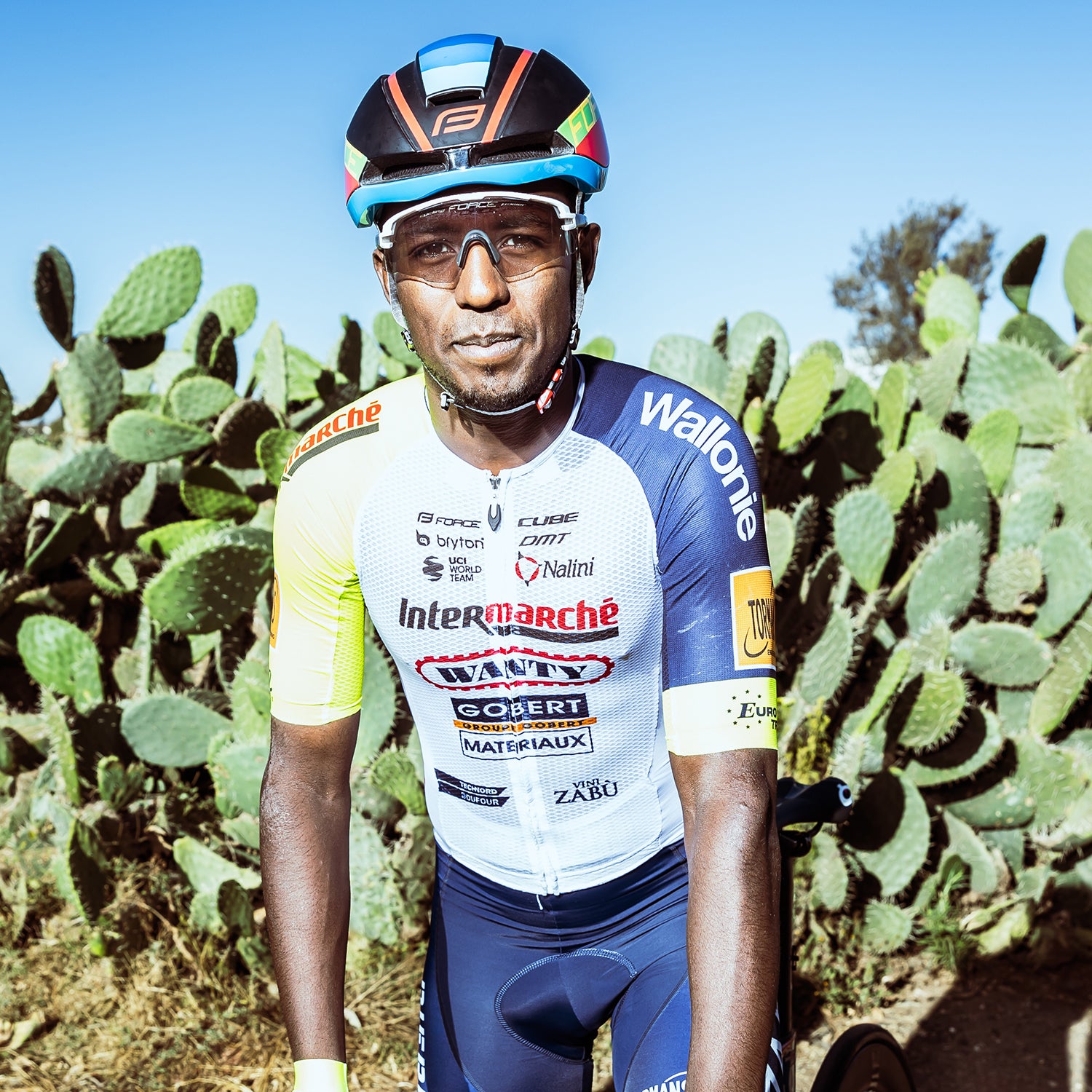Heroes of the Tour de France have a few things in common. Most are white men, and they tend to hail from European nations with strong cycling cultures and robust infrastructure for developing professional racers. Over the event’s 121-year history, riders from France, Belgium, Spain, and Italy have dominated.
Perhaps that’s why fans of the sport were so enthralled by one rider at the 2024 Tour: Biniam Girmay. The 24-year-old comes from Eritrea, a mountainous country on Africa’s Red Sea coast and one of the poorest nations in the world.
At this year’s race, Girmay won three stages and claimed the green jersey, awarded to the best sprinter. These accomplishments etched Girmay into the Tour’s history books. He became the first Black cyclist to win a stage and to claim one of the event’s four jerseys.
Girmay told �����ԹϺ��� that he wants his victories to lead more Black racers to the Tour. “I hope more professional teams will give opportunities to African riders,” he said. “The talent is there, but more investment needs to be done.”
Girmay’s accolades were oft repeated during the Tour’s broadcast, highlighting pro cycling’s notorious lack of diversity. Other Black cyclists have competed in the race, but their contributions were always in supporting roles. In 2015 another Eritrean rider, Daniel Teklehaimanot, wore the polka dot jersey—given to the top climber—for several stages before relinquishing the lead in that competition. Colombian rider Egan Bernal became the first South American rider to win the race overall in 2019.
Professional cyclists of color have also faced blatant racism. In 2017, Frenchman Kevin Reza, who rode the Tour three times, was called a racial slur by Italian cyclist Gianni Moscon during the Tour de Romandie, a weeklong event in Switzerland.
Girmay’s path to the Tour wasn’t easy. Cycling is popular in Eritrea—a by-product of its colonization by Italy in the late 19th century. But because of the country’s largely agrarian economy and paltry racing infrastructure, even the best Eritrean riders rarely reach the big European leagues. Girmay grew up in the capital, Asmara, the son of a carpenter. His father loved cycling and began showing the Tour broadcast to Girmay when he was 11. Girmay began racing mountain bikes at 12, before switching to road racing.
He showed immediate talent, quickly rising to the top of the country’s road-cycling leagues. At 18, he was selected to train and race in the Union Cycliste Internationale’s World Cycling Center in Aigle, Switzerland, as part of a program that offers coaching and racing opportunities to up-and-coming riders from under-resourced nations.
The jump to Europe wasn’t easy. “The solitude was hard,” he told �����ԹϺ���. The new climate was also challenging. “I still struggle to perform optimally in the rain,” he added.
Girmay learned quickly and advanced rapidly. In 2021, three seasons after moving to Europe, he finished second in the under-23 world championships. The following year, he won the historic Gent-Wevelgem in Belgium. He also won a stage of the Giro d’Italia, becoming the first Black cyclist to do so at one of cycling’s Grand Tours. The 2024 Tour de France, with its history and significance, presented the next barrier. And Girmay broke through.


